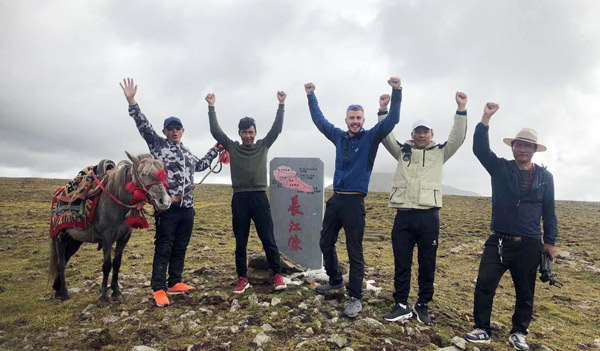And then there was one


"Because the first section on the plateau (at an average of over 4,500 meters above sea level) and the barely inhabited mountain areas are too dangerous to cross."
In order to cross the plateau and mountains in good weather, the journey was planned to start in summer, but because of delays in preparations, Dykes arrived in Qinghai in late August as the days were becoming shorter and colder. Unwilling to wait for another year, he decided to press on.
Within a few days three of the adventurers were vomiting and bleeding, suffering from severe high altitude sickness, and they were forced to abandon the expedition.
In the mountains, the team had to light firecrackers to scare off bears, and on one occasion they were followed by a pack of wolves for two days, Dykes says.
"When we struggled in a snow blizzard and almost lost our way, we saw a monastery. The monks looked after us and told us we should not have come in winter."
Niang Caijiang, 28, a local teacher in Yushu, became Dykes' guide in mid October and quit due to leg injuries. "I learn persistence and courage from the British man," he said. "It is very dangerous walking in those wild and remote areas and walking day after day can be very boring and exhausting."
From Chongqing the river flows to the east through densely populated and developed areas before flowing into the East China Sea in Shanghai.
The rest of the trip would be much easier, Dykes said, and he urged members of the public to join him on some sections of the trek as a way of promoting the protection of the Yangtze River. He set out from Chongqing on the second half of the journey on March 11.

































